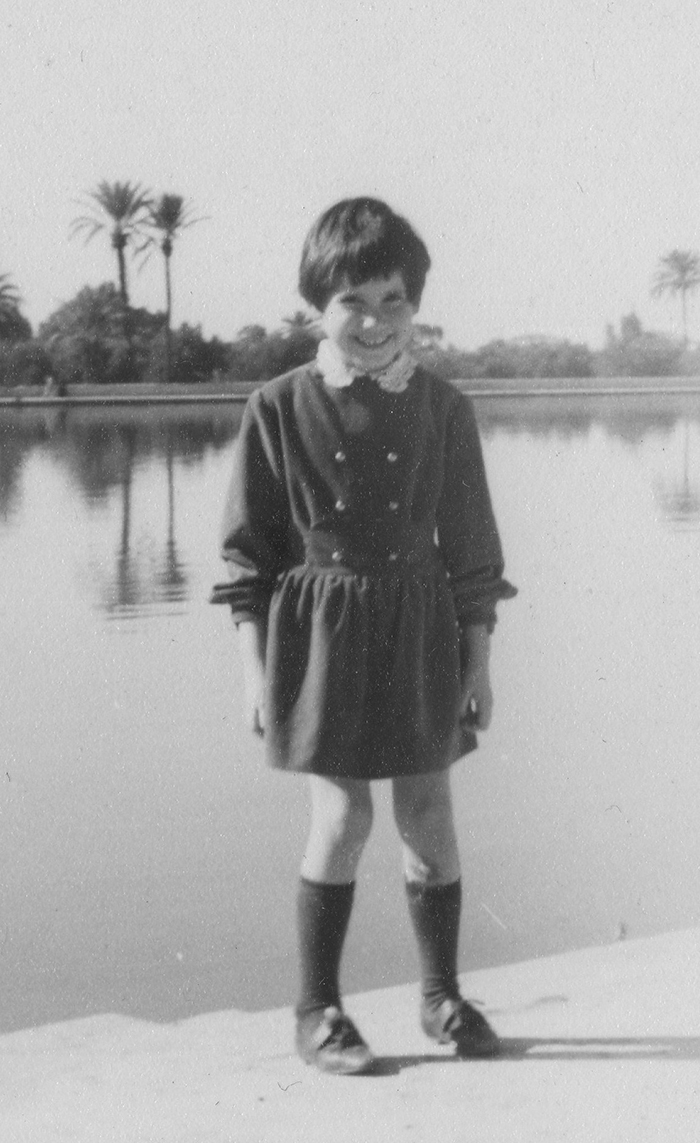LUCILE HADZIHALILOVIC
— There are some large white arum flowers growing on both sides of the garden path. A thick orange pistil lies in the middle of the blossomed corolla. The organ is so soft that walking my fingers on it is a delicious pleasure. And yet I know that it damages them, which is why I do it on the sly. The yellow particles on my fingers leave a scented trail that will be difficult to remove. Sometimes I’m neglectful and spread this scented color on my sheets.
The path bordered with arums leads to a clinic where babies wail. My father, wearing his white coat, delivered them. He has black hair and very beautiful, brown eyes. I live in another part of the clinic and hear him talk through the walls. What he’s saying is still a mystery to me, but I know he obeys a very precise ritual that requires a needle. During the ritual, the baby cries. However, its tears are the tears of a baby freed through a brief and welcome pain.
What I like most is hearing my father’s voice through the handset of the heavy telephone I pick up behind his back. This is how I learnt another ritual I can mimic: reciting the letters of my name. Trust me, it’s not easy. I haven’t told you yet, but this name, he gave it to me, and I mustn’t damage it by mixing up any letters.
When I am not in my room, I play in the garden. I’m too small to see beyond the wall but I can hear the boys laugh and fight on the other side. I find it reassuring. Sometimes they throw rocks in the garden. Happy with these gifts, I pick them up and pile them carefully in a hiding place. I like these stones a lot, they come in handly at night to fall asleep.
In the garden, where I always play by myself, I have all the time I want. That’s why I look at everything very carefully.
I can hardly ever go on the path that leads to the outside because the street, which is so close, is forbidden. But it interests me less than the narrow lane where the flesh of the arums throbs. An infinitely exciting place, where flowers give their soft pistils to my shaking fingers. This is where one night, after the rain, I see something terrible: slimy snails appear and wander inside the spotless corolla. I don’t dare to touch them, even though their obscene presence excites me. They eat and slobber over the flowers which they leave pierced and withered.
The night when the snails soil the arums, I feel a sacrilege. Nothing will ever be the same. The high flowers with their imposing calyxes were planted on this path that connects us to the world to inspire respect and mystery to those about to step into the clinic. I wonder what my father will say when he sees this waste. Will someone be held responsible? Must the alley be shut down and stay closed, forever shielded from our walls? Or will other flowers sparking similar feelings replace the arums? In the meantime, the edges of the path have become rotten. The snails have mysteriously disappeared after their crime. I think they sank into the ground, metamorphosing.
A curtain of rain closes the garden in on itself. The outside moves away, sounds and shapes dissolve, and the rising smell of wet ground breaks my heart.

—
Lucile Hadžihalilović was born in 1961, in Lyon, France. In the early 1990s she founded the production company LES CINEMAS DE LA ZONE with Gaspar Noé, with whom she worked on CARNE and SEUL CONTRE TOUS (I STAND ALONE). Their collaboration continued with her contribution to the screenplay of Noé’s ENTER THE VOID. In 1996 Hadžihalilović produced, wrote, edited and directed LA BOUCHE DE JEAN-PIERRE (MIMI), a 52-minute film that screened in Un Certain Regard, at Cannes, and won several prizes. In 2004, she directed the feature film INNOCENCE, produced by Agat Films Ex Nihilo. The film won the Best New Director Prize at San Sebastian International Film Festival, and at Stockholm International Film Festival. EVOLUTION is her most recent film, directed in 2015 and co-written with Alanté Kavaïté. It won the Special Jury Prize and Best Cinematography at San Sebastian Film Festival.
